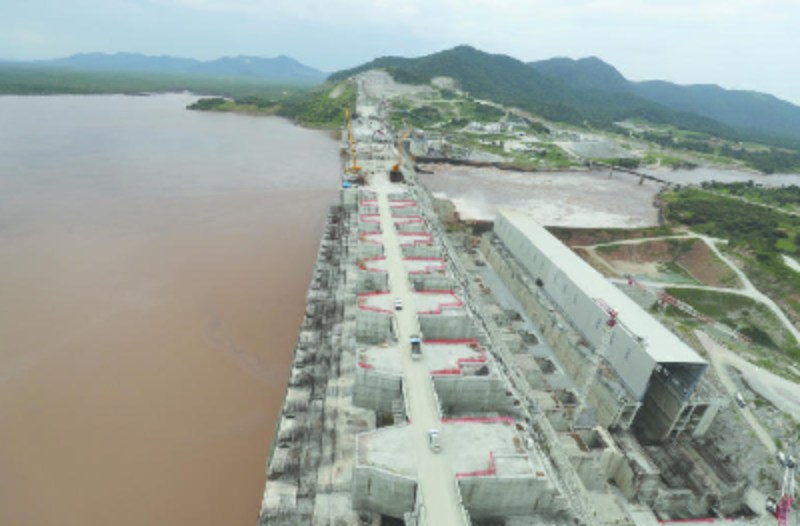
Ethiopia's Grand Renaissance Dam is seen as it undergoes construction work on the river Nile in Guba Woreda, Benishangul Gumuz Region, Ethiopia, on September 26, 2019. [Reuters]
Egypt President Abdel Fattah al-Sisi is talking tough after failure of the latest round of talks over Ethiopia’s Nile dam. After the talks that ended last Sunday in Kinshasa, Democratic Republic of Congo, al-Sisi warned that not even a drop of Egyptian water would be taken, and that ‘all options are open’. He warned the region would fall into unimaginable instability if its water taken.